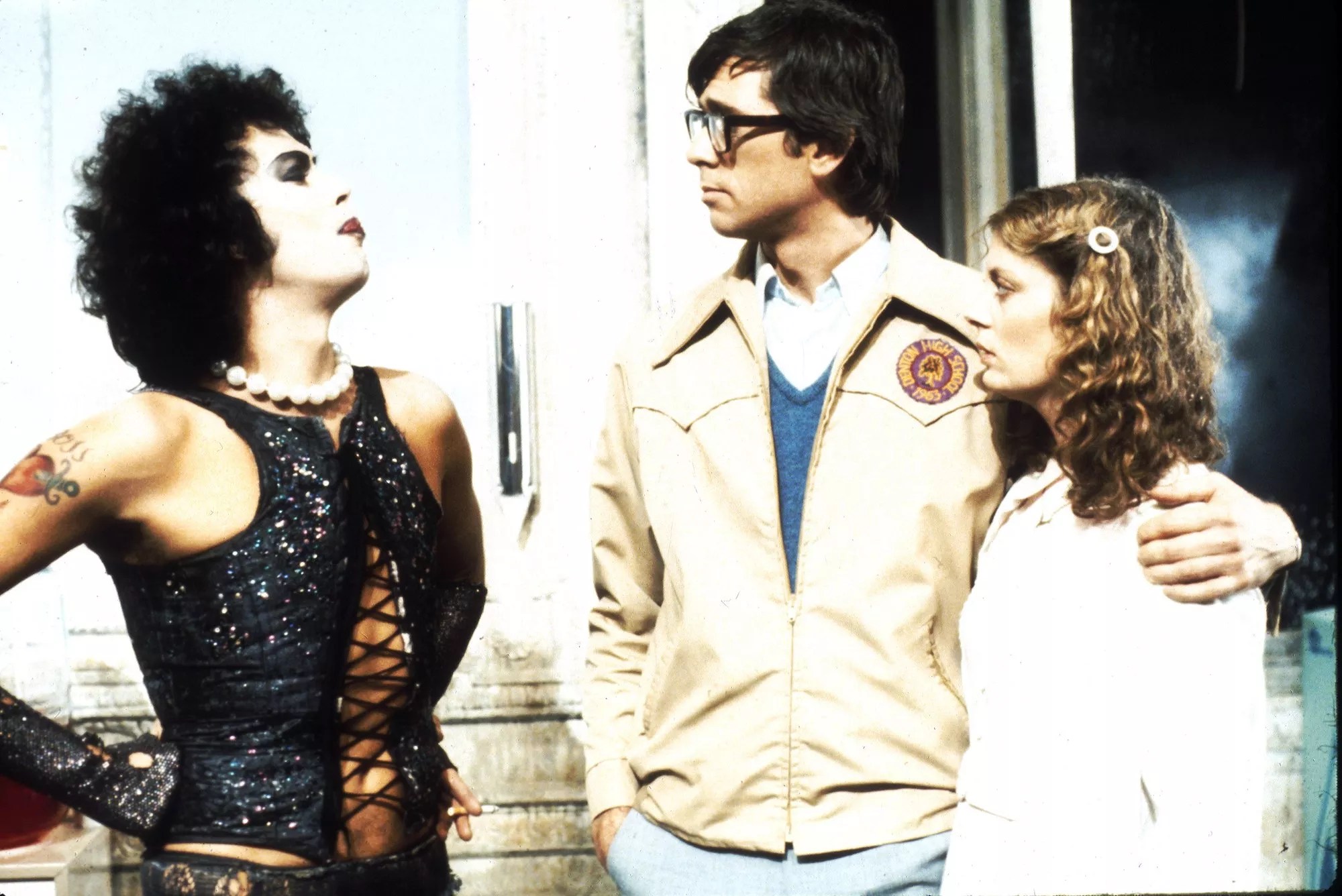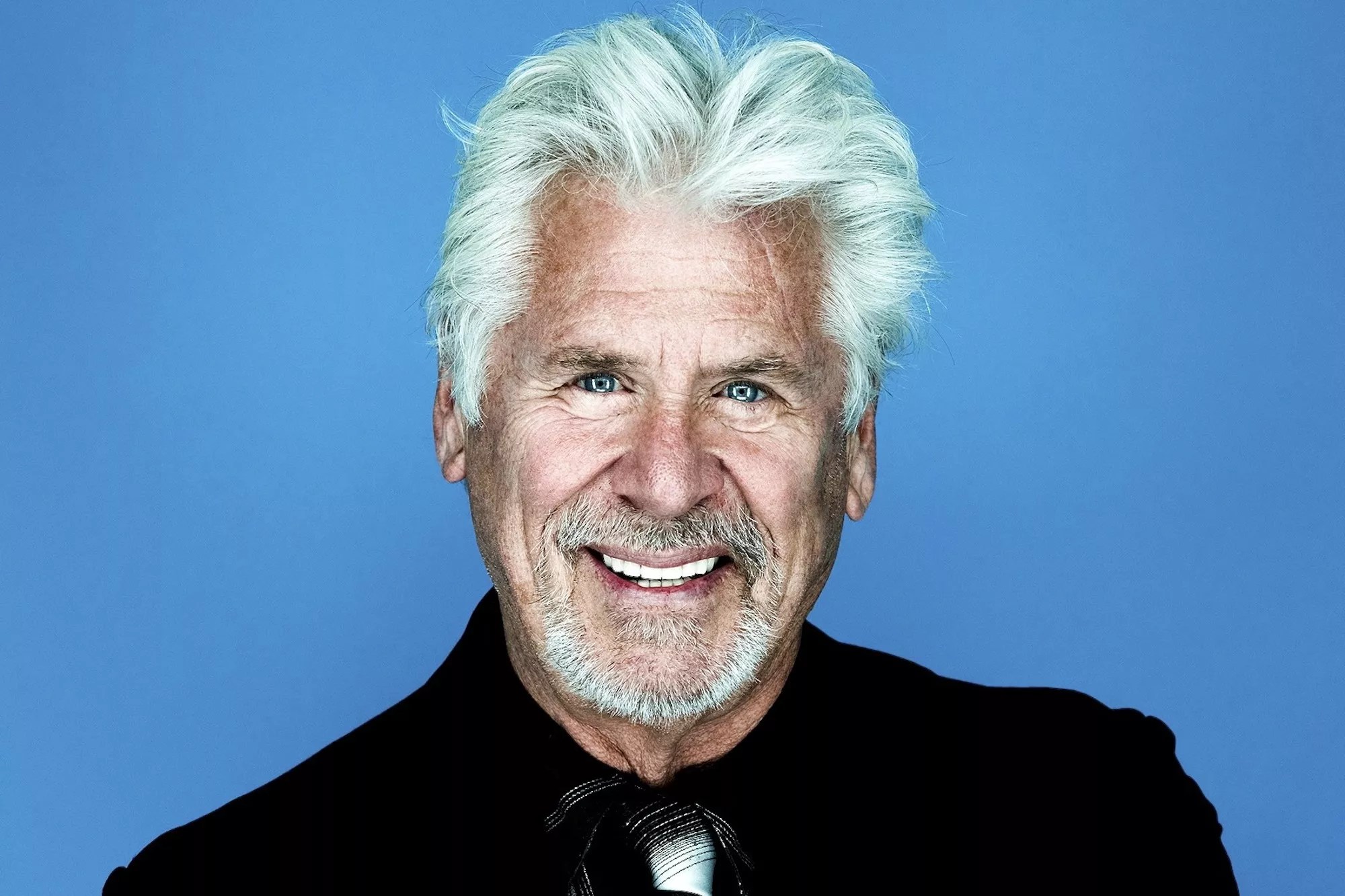
Photo by Michael Ochs Archives/Getty Images

Audio By Carbonatix
I remember doing the “Time Warp” almost a year ago. I had heard about The Rocky Horror Picture Show for years, but it was the popular podcast Stuff You Should Know, which covered the film for an episode, that gave me the drive to watch the 1975 musical. The rock ‘n’ roll and power ballads, the productions, a young Barry Bostwick and Susan Sarandon, the debut of Meatloaf, the looney plot, and, of course, Tim Curry strutting his stuff. I was captivated.
Even as a cisgender, straight male, I felt welcomed and understood the struggle of trying to be yourself. Since then, the soundtrack has been playing ad nauseam. When I mumble, “dammit,” my partner immediately replies, “Janet.”
But watching the film pales in comparison to its live shadow cast rendition, an interactive show in which veterans and live-performance virgins (i.e., first-timers) are in for the night of their lives.
Luckily, to celebrate the movie musical’s 48th anniversary, the Adrienne Arsht Center of the Performing Arts will host a shadow cast event on October 15, where fans can sing at the top of their lungs, show off their best fishnets, and celebrate the film’s 48th anniversary.
“It’s fascinating to me how [the fans] have taken what was, I think, put together as a piece of entertainment to have a real reflection of the time and how people have read into it so much,” Bostwick, who will attend the Arsht performance for a VIP meet and greet, tells New Times. “To me, it’s a real period piece, and now it stands up on its own as a piece of film, but what it really is now is an alternate way to spend your time. I don’t think people are going to it to take away the message of inclusion or self-exploration or any of that kind of stuff. I think it’s just going to hit people in their hearts.”

“The film is a catalyst for the audiences to have an acceptable misbehavior that is encouraged and interesting,” Barry Bostwick says.
Artist management photo
The Miami performance will feature two shadow casts, the Faithful Handymen and Creatures of the Night. “I have done things with both of them, and they are excellent. It’s a lot of fun and creative people who can excite the crowd,” Bostwick says.
Bostwick began his career at the Hillbarn Theater in San Mateo, California, where he quickly landed a role playing Danny Zuko in the theater version of Grease, earning a Tony Award nomination in 1972.
Afterward, he was handpicked to play Brad Majors in Rocky Horror and film in England. Based on the 1973 stage musical The Rocky Horror Show, the movie’s plot sees Majors and his fiancé, Janet Weiss, played by Susan Sarandon, stumbling upon a castle, meeting the mad scientist Dr. Frank-N-Furter from the planet Transexual, Transylvania, and having their lives forever changed. The film was a box-office flop but later became a cult phenomenon.
“It’s really more about the audience,” Bostwick explains. “The film is a catalyst for the audiences to have an acceptable misbehavior that is encouraged and interesting. The movie is playing in the back, and there are callbacks that the audience, if they know the movie, know what time to yell out ‘asshole’ – there is an alternate script that evening that is more important than the script on the screen.”
Bostwick says the audience’s staccato comes from a long game of telephone – one person in Milwaukee, for example, would shout something that would carry from show to show.
“It just grew from there,” he adds. “If you think you can get a laugh as you think, you could do something that will get the audience on your side; you just scream it out, or you follow a well-established script of callbacks that have been nurtured over the years and are sure to to get an audience reaction.”
Rocky Horror‘s place in history comes at a time when lawmakers across the U.S. are pushing through anti-LGBTQ legislation, but for a long time, fans have seen Rocky Horror as a form of resistance and enabling those to be happy about who they are.
“I think Rocky Horror falls out of the realm of current events,” says Bostwick. “I think it’s a historical piece of film, and you have to put it in the context of when it was made. Are the things still relevant? Yes, the idea of everybody exploring who they are – and whatever you come up with, it’s perfect for you. But I don’t think we talked any more politically than that. I see the film as sort of a baton twirler in a high-school marching band. You throw it up in the air, and it keeps spinning, and then when it comes down, you catch it and throw it up again, and that’s been the life of Rocky Horror. Right now, we’re on an upswing.”
Since Rocky Horror, Bostwick has starred in countless shows and movies, including Spin City and Megaforce, and earned a Golden Globe and Tony Award. Bostwick always wanted to entertain and distract the crowd for a couple of hours from their problems. “I just wanted to entertain,” he says. “I didn’t necessarily want them to weep and cry. I was never attracted to real drama.”
Whether virgin or veteran, The Rocky Horror Picture Show has cemented its place in film history. The song “Over at the Frankenstein Place” declares: “There’s a light over at the Frankenstein Place/There’s a light burning in the fireplace/There’s a light, light in the darkness of everybody’s life.”
“The time has gone in the way it should,” says Bostwick, reflecting on the movie’s 48-year legacy. “I think filling every day with something to excite and to excite just myself and to hopefully be grateful for what that day was and to give something back.”
The Rocky Horror Picture Show. 7 p.m. Sunday, October 15, at the Adrienne Arsht Center for the Performing Arts, 1300 Biscayne Blvd., Miami; 305-949-6722; arshtcenter.org. Tickets cost $35 to $175.